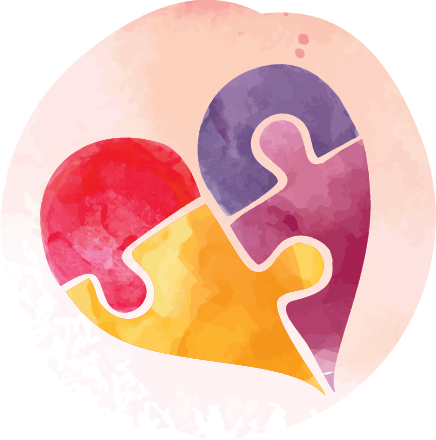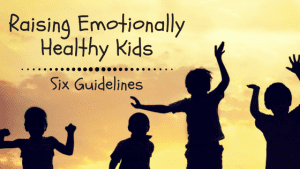Press











ABOUT Sam
SERVICES
Team Ruthless
EVENTS
GRIEFHAB™
PODCAST
RETREATS
shop
HEALING TOGETHER THROUGH THE HOLIDAYS - MAIN EVENT
HEALING TOGETHER - FOR A CAUSE: VIRTUALLY
HEALING TOGETHER - FOR A CAUSE: PILATES IN THE PARK - MICHIGAN
HEALING TOGETHER - FOR A CAUSE: VISIBLE - COLORADO
September 6-7
Jimtember Virtual Jubilee
blog
December 2nd - 8th / Metro Detroit AND VIRTUALLY
August 27th & 28th
August 30-31st
rUTHLESS IN THE ROCKIES
TEAM RUTHLESS
THE CONFIDENCE CONFERENCE
mOBILE rECOVERY dAY
Next event: September 10-23rd, Colorado
October 5-6th -
Virtual Event
September 30th, Castle Rock, Colorado
7 Groups Every week Plus Every Holiday
HEALING TOGETHER - FOR A CAUSE: Ride & ROAR - DALLAS
October 11 -12th
Stay Tuned!
FACES OF GRIEF
JOIN US
Raising Emotionally Healthy Kids: 6 Guidelines
April 12, 2017
As a parent, few things in life matter as much as the health and well-being of your child. While dedicating time and energy to supporting their physical health is important, it is equally crucial to spend time nurturing their emotional and psychological health. The emotions children experience in their early developmental years lay the foundation for much of their adult lives.
By fostering strong psychological health from a young age, you will be able to help set your children on a path for a happy, healthy, emotionally balanced life. As your trusted online psychotherapist, I’ve compiled a few simple ways you can help boost your child’s mental health. Hopefully you find some of these suggestions helpful!
1. Acknowledge Their Feelings.
Whether you’re dealing with terrible twos or a sulking teenager, dealing with your child’s emotional outbursts can be frustrating. Ignoring, minimizing, or brushing off their moods may be tempting. However, it is important to teach your children that they matter, and so do their emotions. Acknowledge their feelings and help teach them healthy, positive ways to deal with them.
2. Don’t Overreact.
I know, I know – not overreacting is much easier said than done. Nevertheless, it is an essential component of raising healthy, balanced kids. If you consistently freak out over the information your child tells you, she may grow to fear your reactions and become less and less likely to talk to you in the future. By responding calmly, you can foster a trusting relationship that your child can rely on as she navigates life’s challenges.
3. Offer Age-Appropriate Independence.
Many children have an intense desire for independence. When they feel like their personal capabilities are restricted, they may rebel against the source of that restriction (that’s you, the parent), or they may fail to develop the confidence they need to rely on themselves By allowing and encouraging age-appropriate independence, you can help them to develop the confidence they need to think for themselves.
4. Speak Highly Of Them.
As a parent, you have immense influence over your child’s self-image. What you think of your child will significantly impact what he thinks of himself. If your child hears that you think he is irresponsible, for example, he will likely view himself in the same manner. This may become a self-perpetuating cycle; because he knows he is an irresponsible person, he will be less likely to keep up with chores and other responsibilities. This will reinforce your opinion that he is irresponsible, which will further reinforce his self-image, and so on. It starts with you – speak highly of your child so that he will think highly of himself.
5. Love Them Unconditionally.
Above all else, it is crucial that your children know that you love them for who they are, not for what they do. They need to know that you will love and support them even if they make mistakes, even if they forget to take out the trash, and even if they fail a test. Your unconditional love will help them to recognize their self-worth and develop self-assurance. As they grow and mature, self-assured children are more likely to pursue positive relationships and avoid getting tied to people who do not give them the love and respect that they deserve.
6. Seek Help When They Are Struggling
If you notice that your child is struggling in some way, I encourage you to respond swiftly. Invite her to speak with you about her struggles. If she opens up to you, remember to acknowledge the validity of her emotions and try not to overreact.
If she does not want to speak to you, consider guiding her towards an alternative safe source for assistance. An experienced counselor may be able to help your child deal with the struggles she is facing, and may be a valuable resource on the road to recovery.
Leave a Reply Cancel reply
120 E. Front St. Loft 2 Traverse City MI 49684 &
77 Monroe Center St Ste 600 Grand Rapids MI 49503
phone : +1 (231)707-0707


Donate TO GRIEFHAB™
Donate today to help make our events and services free for everyone.
You can also donate directly to support a specific client in need.
four
three
info & Investment
two
THE FOUNDER
one
fIVE
GRAB A COPY OF MY
BOOKS & MERCHANDISE
four
three
info & Investment
two
THE FOUNDER
one


fIVE
GRAB A COPY OF MY
BOOKS & MERCHANDISE










HEALING TOGETHER EVENT
EVENTS
four
three
info & Investment
two
THE FOUNDER
one
fIVE
GRAB A COPY OF MY
BOOKS & MERCHANDISE
four
three
info & Investment
two
THE FOUNDER
one





fIVE
GRAB A COPY OF MY
BOOKS & MERCHANDISE










FACEBOOK FAMILY
GRIEFHAB™ SERVICES
FACES OF GRIEF
Our Press Features
THE BE RUTHLESS SHOW
two
three
Recent Articles
one





Coming in September! Stay Tuned.
December 2nd -8th / Metro Detroit AND VIRTUALLY
August 25th
August 30-31st
October 11 -12th
Stay Tuned!










four
three
info & Investment
two
THE FOUNDER
one





fIVE
GRAB A COPY OF MY
BOOKS & MERCHANDISE
four
three
info & Investment
two
THE FOUNDER
one





fIVE
GRAB A COPY OF MY
BOOKS & MERCHANDISE











